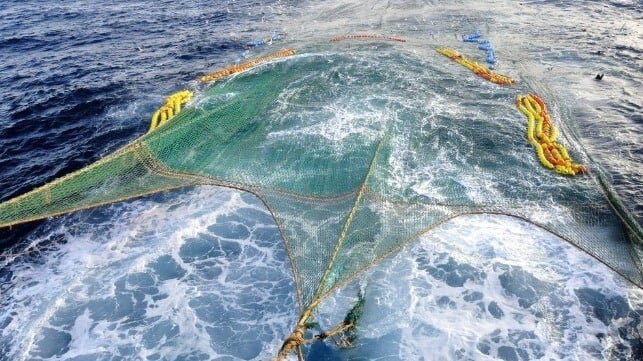Call for Ban on Industrial Krill Fishing to Protect Antarctica Ocean Ecosystem
Environmental campaigners and scientists are intensifying their efforts to ban industrial krill fishing in order to safeguard the delicate ecosystem of the Antarctica Ocean. Recent evidence suggests a rapid decline in emperor penguin populations in the Southern Ocean, with krill potentially playing a significant role in this decline.
During the UN Ocean Conference (UNOC 3) held in Nice, France, a coalition of advocates including National Geographic ocean explorer Sylvia Earle, actor Benedict Cumberbatch, and conservationist Captain Paul Watson, among others, called for a complete halt to krill fishing. They argue that the continued exploitation of krill poses a severe threat to the survival of marine species such as whales, seals, and penguins that rely on krill as a primary food source.
The Role of Krill in the Antarctic Ecosystem
Krill, small shrimp-like crustaceans, serve as the foundation of the Antarctic Ocean ecosystem. These tiny creatures are vital for the diet of whales, seals, and penguins. For instance, a single humpback whale requires approximately 1.5 to 2 tons of krill daily for sustenance.
In recent years, the demand for fishmeal for pet food and farmed salmon feed, as well as krill oil for omega-three supplements, has led to a surge in industrial krill fishing activities. Large-scale trawlers from nations like Norway, China, South Korea, and potentially India have been targeting krill in the Southern Ocean. Data indicates that krill catches spiked to nearly half a million metric tonnes in 2024, compared to around 100,000 metric tonnes in 2017.
The Convention for the Conservation of Antarctic Marine Living Resources (CCAMLR) has attempted to regulate krill fishing to prevent overexploitation. Despite efforts to limit quotas, campaigners and scientists argue that more stringent measures, including a complete ban on krill fishing, are necessary to protect the fragile Antarctic ecosystem.
Penguins in Peril
A recent study by the British Antarctic Survey has raised concerns about the rapid decline of emperor penguin populations in Antarctica. Satellite imagery analysis revealed a 22 percent decrease in penguin numbers over a 15-year period from 2009 to 2024, surpassing previous estimates. If current trends persist, scientists predict the possible extinction of emperor penguins by 2100.
In addition to climate change, the study points to escalating competition for food resources as a contributing factor to the penguins’ decline. With petrels, seals, and killer whales vying for the same food sources, emperor penguins face increasing challenges in securing an adequate food supply.
The mounting evidence of ecological disruption and species decline underscores the urgent need for decisive action to protect the Antarctic Ocean and its inhabitants. Advocates are calling for a ban on industrial krill fishing to preserve the delicate balance of this unique marine ecosystem.

